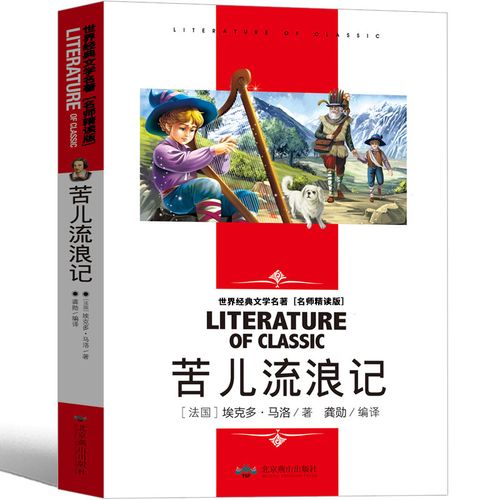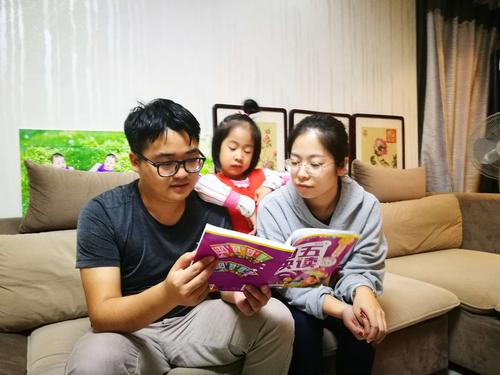entre是什么意思re在线翻译读音海词法语-潜逃时空
2023年4月19日发(作者:bbc新闻网)汉译英
第⼆章词语的翻译
第⼀节词的选择
汉语和英语的词义都很丰富,表达⽅式多种多样,但由于汉民族和英美民族之间的种种差异,看似相同的东西在语⾔表达上也
有不同。在翻译的时候要认真分析,选择符合英语语⾔、⽂化、社会等⽅⾯特征的词汇。
1.1⼀词多义
汉语词义⼀般⽐较笼统,英语词义⽐较具体。这符合汉民族重整体,英美⼈则重个体的思维⽅式。翻译时,必须根据语境,准
确理解,⽤恰当的英语表达词义。⽐如“就”字;1)他就着油灯读信。(动词:凑近)
(He read the letter by the oil lamp)
2)稍等⼀会⼉,我就来。(副词:很快)
(Just a minute. I’m coming)
3)我这星期不忙,就你的时间吧。(动词:根据)
(Make it any time at your convenience. I’m not busy this week.)
⼜如“上”字:
4)上班:to go to work
5)上报:to appear in the newspaper, to report to a higher authority
6)上当:to be taken in, to be cheated
7)上吊:to hang oneself
8)上⽕:to get angry
9)上路:to set out on a journey
再看另外例句;
1)这⼀盘你上。(You play this game.)
2)⼀连上了好⼏道菜。(Several courses are served in succession)
3)这事已上了电视了。(It has been published on TV)
“轻重”和“头”
1)这两个箱⼦轻重不⼀。(The two cases do not weigh the same.)
2)请你别见怪,他说话就是不知轻重。(I hope you won’t mind about his words. He simply
doesn’t know the proper way to talk.)
3)这娃娃头真⼤。(The boy has got a real big head.)
4)让朱自清作品 我从头讲起吧。(Let me tell the story from the very beginning.)
5)事情不能只顾⼀头。(We mustn’t pay attention to only one aspect of the matter.)
1.2 同义词
同义词是指意义相同或相近的词。同义词之间的词义有轻重、⼤⼩等。汉语中有不少的同义词,如“美”的同义词有:美丽、好
看、中看、英俊、俊美等,但在具体的语境中具有不同的内涵或侧重点,同样英语⾥也是如此,⽐如“美”⽅⾯的可⽤不同的⽅
式来表达:beautiful, good-looking, pretty, attractive等,各有不同的所指。在翻译时,要注意英语的表达习惯,同时考虑他们
的⽂化、社会、语境和风格,选⽤恰当的词语。
1)她具有内在美的性格。(She is endowed with a lovely character.)
2)这对夫妻长得很漂亮。(This couple are good-looking.)
3)当那漂亮的男演员出场时,⼤家都盯着他看,剧场安静下来。(When the handsome actor
appeared on the stage, all eyes were fixed on him and the theatre became quiet.)
第⼆节词的增减
词的增减是⼀种翻译⼿段,指添加或删去⼀个或⼏个词,从⽽使得译⽂在语法、语⾔形式等符合习惯,在内容、形式和精神等
⽅⾯能对等起来。由于汉英语的本质差异,汉语为语义性,以意义的表达为主,⽆须使⽤形态;英语则为形态性语⾔,主谓必
须⼀致,词性不同⽽使⽤不同的词尾等等;汉语的名词使⽤频率要⾼于英语;汉语语⾔中具有丰富的内涵,等等。在翻译时,
在不违背原⽂的基础上添加必要词或英语所需的语法部分,从⽽使译⽂在语法、语⾔形式等符合英语的习惯和表达⽅式,内容
上基本对等。
⼀、词的增加
作⽤:第⼀、保证语法结构的完整;第⼆、确保意思的明确。
1)他喜欢指出别⼈的缺点,但⽤意是好的。(He likes to point out other people’s shortcoming, but he means well.)(增加
主语he)
2)早知他有病,我就不会叫他来了。(If I had known he was ill, I would not have asked him to come.)(增加连词if)
3)三个臭⽪匠,合成⼀个诸葛亮。(Three cobblers with their wits combined equal Zhuge Liang the master mind.)(增加
词语,提供背景知识)
4)结婚⼤办酒席,实在可以免去了。(The practice of giving lavish feasts at weddings can well be dispensed with.)(增加
practice⼀词,意思更明确)
⼆、词的减少
主要删去:第⼀、原⽂中重复出现的词语;第⼆、原⽂中表⽰范畴的词语;第三、可能影响原⽂修辞效果的词语。如下⾯例
句:
1)我们说,长征是历史记录上的第⼀次,长征是宣⾔书,长征是宣传队,长征是播种机。
(《⽑泽东选集》第⼀卷,135)(We answer that the Long March is the first of its kind in the annals of history, that it is a
manifesto, a propaganda force, a seeding machine.)(原⽂为了强调才重复了四次,⽽在英语中就不必了。)
2)中国⾜球的落后状况必须改变。(The (state of /condition of ) backwardness of the Chinese football must be changed.)
英语中的抽象名词实际上就表⽰汉语有些范畴或概念的意义,所以翻译时就不必如此对号⼊座了,以免表达不顺。
3)整个城市的交通状况将在五年内得到较⼤改善。(The transportation of the city will be greatly improved during the five
years.)
4)今⽇各⾃进去(备考),孤孤凄凄,举⽬⽆亲,须要⾃⼰保重!(Today, entering for the examination, you’re going to be
entirely on your own, so you’ll have to take care of yourselves!)
5)你怎么能过河拆桥,忘恩负义呢?(How can you kick down the ladder?)
6)另外,⼀些短语或习语的翻译,如:
紧张局势:tension 限制措施:limitation
安全状况:截的拼音 sa登幽州台歌陈子昂简介 fety 陈词滥调:a ponderous thesis/ a lengthy speech 铜墙铁壁:bastion(堡垒)of iron 能说会道:to have the
gift of the gab(废话)
丰功伟绩:great contributions (achievements)
以怨报德,恩将仇报:to return kindness with ingratitude
第三节词性的转换
由于汉语为语义性语⾔,不受形态的约束,动词使⽤较为⾃由,所以使⽤频率⾼于汉语;英语为形态性语⾔,动词与主语保持
⼀致的关系,动词的运⽤受到⼀定的限制,这样在实际的运⽤过程中,名词的使⽤频率⽐较⾼。同样,汉语中使⽤虚词如介
词、冠词等也少于英语。这样在汉译英的过程中就要进⾏词类转换,从⽽符合英语的特点和表达⽅式。还有其他的转换如副词
转为介词等。请看下⾯例句。
1)他这个⼈最爱说话了。(He is a great talker.)(动词——名词)
2)我对他们越来越憎恨。(My hatred for them grew more)(动词——名词)
3)他⽤⼿指在墙上写下了⾃⼰的名字。(He wrote down his own name on the wall with his finger.)
4)这位⼥主⼈⾮常漂亮。(The hostess is a real beauty.)(形容词——名词)
5)我吃了饭去给你叫出租车。(I’ll go and call a taxi for you after dinner.)(动词——介词)6)他总是⽚⾯地看问题,已经
⼏次陷⼊困境。(He is always taking a one-sided approach to problems, which has landed him in many scraps (trouble). (副
词――形容词)
第四节褒贬译法
在任何语⾔中,词汇可根据语法特点分为:名词、动词、代词、形容词、介词、副词等;也可按照其感情⾊彩分为:褒义词、
贬义词和中性词。在翻译过程中,也必须考虑词汇所表达的感情⾊彩;分析原⽂的基调,视情况对贬义或褒义进⾏加强或减
弱。
⼀、褒义或贬义的加强
褒义词和贬义词是作者经常⽤来加强⾃⼰观点的词语。在翻译时,可根据上下⽂的具体情况,通过加词等⽅法来增强褒义或贬
义的程度。
1)苏州以其优美的古典园林⽽闻名天下。(Suzhou is noted for its beautiful classical gardens.)
2)他的⽗亲是有名的外科医⽣。(His father is a famous surgeon.)
3)黄⾦荣是旧上海有名的⼤流氓。(Huang Jinrong was a notorious rogue /roug/ in Shanghai in the old times.
4)这个男孩因功课做得仔细认真⽽受到所有⽼师的赞赏。(The boy is appreciated by all his teachers for his carefulness i n
his homework.)
5)事实上,正是因为他的谨⼩慎微,才使他的研究⼯作没有进展。(In fact, it is his meticulousness that is preventing him
from making any progress in his research)
⼆、根据语境,采⽤褒贬
当遇到⼀些中性词时,要注意其上下⽂或原⽂的基本⽬的,挖掘这些中性词所含有的褒义或贬义。
1)诗⼈应该具有丰富的想象⼒。(A poet should have rich imagination)
2)真遗憾,你的想象⼒太丰富了。(What a pity! You’ve got into wild flights of fancy)
3)有了⼈,事情是不难想到的。⼈既然以祥⼦为主,事情当然也以拉车为主。只要我教⼀切的⼈都和车发⽣关系,我便能把
祥⼦拴住,象把⼩⽺拴在草地上的柳树下那样。(⽼舍:我怎样写《骆驼祥⼦》(Once I had my characters, it was
comparatively easy to work out the plot. Since Xiangxi is the main character, everything in the story must revolve around
rickshaw pulling. As long as all the people were linked in some way with the rickshaws I had Xiangzi pinned down exactly
where I wanted him.)
第五节专有名词的翻译
专有名词(proper names)主要具备指称意义和信息功能,有时还具有语⽤意义、美感功能和祈使意义。专有名词的翻译与
历史、国情和民族习惯相关联。
⼀、姓名的翻译
汉语姓名特点:第⼀、姓在前,名在后;英语则是名字在前,教名在中,姓在后。第⼆、汉语的名字具有⼀定所内涵,反映时
间如:春花、夏⾬、秋莲,地点如:张京,时代:李⽂⾰,王跃进。
翻译⽅法:
(⼀)根据《汉语拼⾳⽅案》,采⽤⾳译(transliteration),也是国际通⾏的标准。⽤汉语拼⾳⾳译⼈名,姓在前,名字在
后,姓和名字的第⼀个字母都⼤写;如是双名,则将双名连在⼀起,如:刘江华(Liu Jianghua),张伟(Zhang Wei)。
(⼆)但是,国际上还会使⽤威妥玛-贾尔斯系统(the Wade-Giles System),与普通话的发⾳相距很远,不科学,但在海
外还有使⽤,过去的⼀些名字主要是这样译的,如:孙中⼭(Sun Yat-sen),孔⼦(Confucius),北京⼤学(Peking
University)。这些译法不必修改了,遵循“约定俗成”的原则。
(三)如⼈名或地名有其他的含义,尤其在⽂学作品中,除⾳译外,还可辅以意译。著名翻译家杨宪益、戴乃迭(die)翻译
《红楼梦》中的⼈名时就采⽤了这样的译法,如:宝⽟(Pao-yu)、黛⽟(Tai-yu)、熙风(His-feng,但加注:Splendid
Phoenix)、袭⼈(His-jen,也加注:Literally assails men)等。⽜津⼤学的教授⼤卫霍克斯则是对男⼥主⾓采⽤⾳译:宝
⽟(Bao-yu)、黛⽟(Dai-yu)、熙风(Xi-feng),丫头和次要⾓⾊采⽤意译:平⼉(Patience)、袭⼈(Aroma芳⾹)
⼆、地名的翻译
(⼀)地名,⼀般说来,主要采⽤(1)⾳译:上海(Shanghai)、苏州(Suzhou);(2)意译:三峡(Three Gorges),
拙政园(the Humble Administrator’s Garden),虎丘(Tiger Hill)等;(3)⾳译加意译:泰⼭(Mount Tai)、漓江(Li
River)、⼭海关(Shanhai Pass);(4)⾳译和意译⼀起:乾清宫-Qian Qing Gong(Palace of Heavenly Purity)、太和
殿-Tai He Dian(Hall of Great Harmony);(5)解释法:“寒⼭寺”原来译为Cold Hill Temple,但后来得知因⼀名为“寒
⼭”的和尚得名,所以改译为Hanshan Temple,采⽤在旁边加解释的译法。
(⼆)街道⼀般采⽤⾳译法,如:长江路(Changjiang Lu)、南京路(Nanjing Lu)、观前街(Guangqian Jie);有的地⽅
也⽤⾳译加意译:中⼭路(Zhongshan Road)。现在更多的地⽅采⽤⾳译法。
(三)城市名分为直辖市和⾮直辖市:直辖市如上海市(Shanghai 或Shanghai Municipality)、重庆市(Chongqing或
Chongqing Municipality);⾮直辖市如:⼴州市(Guangzhou City)、苏州市(Suzhou City)。
(四)县的译法,如兴国县(Xinguo County)、永新县(Yongxin County),但单名的必须把“县”⾳译,如吴县(Wuxian
County)、赣县(Ganxian County)。
(五)地区的译法:较⼤的区或地区⽤region,如鄂西⼟家族苗族⾃治区(Tujia-Miao Autonomous Region(Prefecture)of
Exi、苏州地区(Suzhou region),但是城市下属的区则⽤district,如吴中区(Wuzhong District)、朝阳区(Chaoyang
District)、普陀
区(Putuo District)
三、⽂章标题与书名的翻译
这些都是特别的短语,并且⼤多是名词性的,所以⼀般都要翻译为名词性的短语。我们很多同学在写论⽂的时候就会忽视这⽅
⾯的问题,如在⼀些论⽂题⽬以及⼩标题的处理上⾯。常见的翻译⽅法:
(⼀)直译法,尤其是由名词相加构成的标题,如:
《粮⾷⽣产与⼈⼝控制》――Food Production and Population Control
《孔庙孔府孔林》――The Confucius Family Mansion, Temple and Woods
《⼩桔灯》――Little Orange Lamp
秋菊打官司(电影)——Qiuju Goes to Court
东⽅时空——Oriental Time and Space
(⼆)⾳译法,如:
《针眼⼉胡同的⽚警》(电视剧)——Police Officers in Zhenyan’er Hutong
孔⼄⼰――Kong Yiji
(三)意译法,主要是对历史⽂献,或具有历史意义、⼀定内涵的作品名,如:《史记》——Records of the Historians
《⽔浒》――Outlaws of the Marsh;All Men Are Brothers;The Rebels in Water Margin:Water Margin,最后的那个为直
译。
上海掌故——In Search of Old Shanghai
五⼗步笑百步——The Pot Calling the Kettle Black
霸王别姬——Farewell to My Concubine
体坛掠影——Sports and Sportsmen
(四)⾳意结合翻译法
《唐明皇》(电视剧)——Emperor Tang Ming Huang
其他的翻译可以参见教科书P84-102
第三章语态的翻译
所谓语态的翻译,是指汉英语⾔之间主动与被动句的转换。汉语更多使⽤主动语态,这与汉族⼈的思维⽅式有密切的联系,
以“⼈”为主;英语则有不少的被动语态,尤其在讨论客观事物的时候,更是如此。先试译⼏句:
1.遭到了邻居们的嘲笑
He was laughed at by his neighbors.
2.希望你有机会来中国访问。
It is hoped that you will have a chance to visit China
3.这⼉讲的是英语。
English is spoken here.
下⾯从三个⽅⾯来讨论汉语语态的翻译问题。
⼀、汉语被动句的翻译。汉语被动句主要有两⼤类:含有被动意义词汇的(有标记)和没有
被动词汇的被动句。它们都须翻译成被动句。
(⼀)有被动意义词汇的,如:被、受、遭、给、挨等
1.他有责任⼼,被同学选为学⽣会主席了。
He is very responsible, and was thus elected Chairman of the Students’ Union.
2.连战先⽣深受⼤陆同胞的尊敬。
Mr. Lianzhan is greatly respected by the fellowmen in the mainland.
3.窗上的玻璃叫那个孩⼦打破了,他⼀定要挨骂的。
The window pane was broken by the child; he will be certainly scolded.
4.我们的教学楼为繁忙的公路所环绕。
Our teaching building is surrounded by the busy highway.
(⼆)没有被动词汇的。这类是指形式上为主动的,但其主语为动作的承受者,不是动作的执⾏者,所以实际上在英语⾥是被
动句。
1.有些问题还必须进⼀步澄清。
Certain questions should yet be further clarified.
2.《围城》已经译成许多国家的⽂字了。
Fortress Besieged has been translated into many languages.
3.这项计划正在研究,明天会有结果的。
The pl蜂唐罗隐古诗拼音 an is now being studied (under study), and will be decided tomorrow.
⼆、汉语主动句译为被动句。汉语多⽤主动句,但有时要译为被动句,其理由包括下⾯三个
⽅⾯:
(⼀)为了强调
在英语中经常使⽤被动句来强调动作的承受者,以⽰其重要性;⽽汉语还是⽤主动句。这样有必要把汉语的主动句转换为英语
的被动句。
1.中美已经建⽴了外交关系。
Diplomatic relations have been established between China and the United States of America. 2.⼀群⼈⽴刻把他围住了,向
他提出⼀个⼜⼀个的问题。
Very soon he was surrounded by a crowd and was snowed under with questions.
3.要充分重视⾃然科学理论包括现代数学、⾼能物理、分⼦⽣物学等理论的研究。
Full attention must be paid to theoretical research in the natural sciences, including such basic subjects as modern
mathematics, high energy physics and molecular biology.
4.我国各族⼈民每年都要热烈庆祝⼗⽉⼀⽇的国庆节。
National Day is enthusiastically celebrated on Oct.1 by the Chinese people of all the
nationalities every year.
(⼆)为了加强上下⽂的连贯性
英语中,常常为了上下⽂的连贯,使得句⼦之间的衔接紧密⾃然⽽运⽤被动结构。所以我们要把汉语的主动句⼦译为英语的被
动句。
1.他出现在舞台上,观众顿时给予热烈⿎掌。
He appeared on the stage and was warmly applauded by the audience immediately.
2.⼝试时,问了⼗个问题,她全都答对了。
She was asked ten questions in the oral exam and answered every one of them correctly.
(三)出于礼貌
英语中常常出于礼貌,⼀般不说出动作的执⾏者,尤其是第⼀⼈称,所以更多使⽤被动语态。这主要⽤于讲话、通知或请贴
等。
1.请你给我们表演⼀个节⽬。
You are requested to give a performance.
2.请全系教师和员⼯于星期三下午⼆时在会议室聚合,听报告。
All teachers and workers of the Department are requested to meet in the conference room at 2: on Wednesday to hear
a speech.
3.来宾请出⽰⼊场券。
Visitors are requested to show their tickets.
4.希望你们能提出宝贵意见。
You are expected to give their suggestions.
三、⼀些习惯⽤语的翻译
汉语中有不少的习惯表达法,有的⽤“⼈们”、“⼤家”或“有⼈”等作主语,表⽰泛指;有的是⽆主句,如“据悉”、“应该说”、“必须
指出”、“据报道”等。在汉语中这些都是主动语态,但在英语⾥⽤被动⽅式表达,并且也有固定的被动结构与之匹配,⽤it 作形
式主语。如下⾯例⼦。
1.据报道,中国球队在这次世界杯获得了五块⾦牌。
It is reported that the Chinese team has won five golden medals in the world cup.
2.应该说,他们的进步是努⼒⼯作的结果,值得表扬。
It should be said that their progress results from their hard work and is worth praise.
类似的表达法有:
1.⼈们认为……
It is considered (thought) that
2.普遍认为
It is generally (usually) accepted ( agreed, recognized) that
3.有⼈(⼤家、⼈们)相信
It is believed that
4.⼤家知道
It is well-known that
5.据推测
It is supposed that
6.据估计
It is estimated (predicated) that
7.必须指出
It must be pointed out that
8.由此可见
It will be seen that
9.⽆可否认
It cannot be denied that
10.已经证明
It has been proved (demonstrated) that
11.我们希望
It is expected (hoped) that
第四章句⼦的翻译
第⼀节主语的确定
汉语为话题-说明结构,英语为主语-谓语结构。所以在汉英翻译的时候,注意把汉语的句型转化为英语的主语-谓语结构,
找到合适的成分作为英语的主语。
1.封⾯上印有⼀个猎⼈的像。(汉语的宾语)
The figure of a hunter was printed on the cover.
2.⽴刻就要吃饭了,还要吃⾖⼦,吃穷了⼀家⼦。(鲁迅《风波》)(增加主语)We are going to have supper right away,
yet they’re still eating roast beans, eating us out of house and home.
3.⼜下起了⼤雪了,只有呆在家⾥。(采⽤形式的主语)
It was snowing heavily, we had to stay at home.
4.经济犯罪与腐败有秋天的景色短句 着千丝万缕的联系。(汉语的宾语)
A close relationship exists between economic crime and corruption.
5.“孔⼄⼰,你脸上⼜添上新伤疤了。”(汉语的定语)
Kong Yiji ! You’ve got fresh scars on your face.
6.(贾宝⽟)胡思乱想,⼀夜也不曾经合眼。(《红楼梦》)(增加主语)
Indulging himself in wild fancies, he did not close his eyes throught the night.
7.我们的⾃然科学⽐较落后,要努⼒向外国学习。
In natural science, we are rather backward and here, we should make a special effort to learn from foreign countries.
8.批评家的⽂字,看在不⾔之中,最为难解。(推导主语转移)
The unsaid meaning in critical essays make them the most difficult texts to be understood. 9.吃饭得⽤筷⼦。(状语为主
语)
Chopsticks are used for eating meals.
注意:选择英语的主语时,不要受到任何限制,不忽视句中任何⼀个词语或成分可以⽤来作英语的主语的可能性。译者在吃透
了全句意义以后,最为基本的任务是把握住英语的SV结构,使得英语句⼦的核⼼框架尽早形成。(刘宓庆,1992:40)
第⼆节谓语的确定
汉语与英语的谓语有很⼤的差异,如汉语的谓语较为⾃由,不受到任何限制,⽽英语的则有形态⽅⾯的制约,英语中句⼦只能
有⼀个谓语动词。所以在选择的时候要充分考虑这样的因素:
实⾏以主语制谓语,或以谓语看主语;
既不忽视语法分析,⼜不忽视逻辑实事。
⼀、谓语的翻译
1.我到了⾃家的门外,我的母亲早已迎着出来了,接着便飞出了⼋岁的侄⼉宏⼉。(《故乡》By the time I reached the
house my mother was already at the door to welcome me, and my eight-year-old nephew, Hong’er, rushed out after her.
2.太太病了也⽼是这样,并不加重。这也许是那⼀线胡⼦的功效,运⽓没坏到底。(《围城》)His wife’s condition
remaine d the same as ever without getting any worse. Perhaps this was due to that single line of mustache描写树木的四字词语 . His luck hadn’t
completely turned sour.
3.当下⽔果已撤,贾母命两个⽼嬷嬷带了黛⽟去见两个舅母。(《红楼梦》) Now the refreshments were cleared away and
the Lady Dowager ordered two nurses to take Daiyu to visit her two uncles.
⼆、连动式谓语(verbal expressions in series)的翻译
汉语中经常有⼏个动词⽤在⼀起作谓语,但其间的逻辑关系很复杂。在翻译的时候,⾸先需要我们要认真分析其结构,找到合
适的作英语的谓语动词。
1.他们⼀般是在晚上⼗点左右刷⽛洗脸上床睡觉。(并列)
They often brush their teeth, wash themselves and go to bed about 10:00 at night.
2.他⼀到上海就去看他的⽼师。(承接)
He visited his teacher as soon as he arrived in Shanghai.
3.这⼉够漆⿊的,真是伸⼿不见五指。(条件-结果)
It is too dark to see my hand in front of my face.
4.⼤雪纷飞,乡亲们都在家⾥烤⽕取暖。(取暖是⽬的)
It was snowing hard. All the villagers stayed at home and warmed themselves by the fire.
第三节语序的调整
汉语基本上是按词语(语序)、逻辑规律排列的,⽽英语也有按语序和逻辑的,但还是尊重形态规律的。
⼀、定语的调整
汉语的定语较为灵活,根据语义的情况⽽定,英语则有⼀定的规律的,⼀般是:限定性,描绘性,分类性的顺序。看下⾯例
⼦:
昨天买来放在屋⾥最前⾯的这两张法国产的打牌⽤的刻了花的古⽼的
16 15 3 2 4 11 13 10 7
硕⼤的深红⾊的漂亮的圆的⽊头的桌⼦都是我⽗亲的。
6 9 5 8 12 14 1
Both the first two nice big old round red carved French wooden card Tables in the room that
1 2 3 4 5 6 7 8 9 10 11 12 13 14 15
were bought yesterday belong to my father. (潘⽂国,1997:235)
16
汉语定语的次序⼤致是:
1)时间地点定语
2)领属性词语
3)限定性词语
4)短语性定语
5)国别定语
6)描绘性定语
7)本质性定语
其他⼏个例⼦:
1.他在华东师范⼤学对外汉语学院办公室⼯作。
He works at the office of International College of Chinese Studies of China Normal
University.
2.这些枯燥⽆味的法语教材是那对年轻夫妇编写的。
These dull French teaching materials are produced by the young couple.
3.汉语传统语法/中国古典⽂学
traditional Chinese grammar/ classical Chinese literature
⼆、状语的语序(参见p199)
1.她每天早晨在校园⾥朗诵。
She reads aloud on the campus every morning.
2.他过马路时,左顾右盼,害怕撞到过路的车⼦上。
While crossing the street, he looked right and left, for fear that he might run into some passing car蝉字组词 .
3.静静地这乡村躺在⽉光下⾯,静静地这⼩河躺在⽉光下⾯。(先乡村,后⼩河,先⼤,后⼩)
Silently, the village, the small river, lay in the moonlight.
三、汉语复句中的语序(参见p.202)
汉语还是⼀般遵循逻辑顺序,即先做的,先说(时间顺序),英语也是如此,但更为灵活,形态起⼀定的作⽤。
1.我把电话打通了,她感激地谢了我,回头就⾛。(按原语序翻译)
I made the phone call and got through to the doctor. The girl gratefully thanked me and turned
to leave straightly away.
2.我告诉他,家有⽼母长年患病,我离国已六、七年,想回去看⽼母,⾄多两年就出来。
I told him that I had been abroad for six or seven years and that I had to go home to see my
old mother, who had been ill for a long time. However, I assured him that I would come back to France in two years.
说明:注意“⽼母”与后⾯的定语从句之间的关系,以便译⽂结构紧凑,语义连贯,逻辑性强。
3.计算机刚⼀启动,就发现有病毒。
Hardly had the computer started working when viruses were found.
4.燕⼦去了,有再来的时候;杨柳枯了,有再青的时候;桃花谢了,有再开的时候。但是,聪明的你,告诉我,我们的⽇⼦
为什么⼀去不复返呢?
Swallows may have gone, but there’s a time of return; willow trees may have died back, but there’s a time of regreening;
peach blossoms may have fallen, but they will bloom again. Now, you the wise, tell me, why should our days leave us, never
to return?
5.那对年轻夫妇当时⾮常穷,买不起。
The young couple were so poor that they could not afford such an expressive color TV set.
第四节“把”字句的翻译
⼀、含有“处置”意思(参见p.236)
1.我的⼀位朋友最近把他的房⼦油漆过了。
A friend of mine has had his houses painted.
2.如果他不规规矩矩,我就把他关在那房⼦⾥。
If he won’t beh天下归心上一句 ave himself, I’ll have him locked up in the room.
⼆、含有“致使”意义
1.这⼀躺把他累坏了。
The trip tired him over.
2.你怎么来得这么晚,真把我急死啦!
Why are you so late? We were worried to death about you.
三、含有“把甲当⼄”
1.他把我错当成我的兄弟了。
He mistook me for my brother.
2.村⾥⼈不把我当作为⼈。
People in the village didn’t treat me as a stranger.
四、带有双宾语的“把”
1.我把信交给了她。
I gave her the letter.
2.他们把消息告诉他们所遇到的每⼀个⼈。
They told the news to everybody they met.
第五节“是”字句的翻译(参见P.226)
第六节长句的翻译(参见p.244)
一院的英文译语怎么说-someone like you 歌词
更多推荐
笼统是什么意思线翻译语短语








发布评论